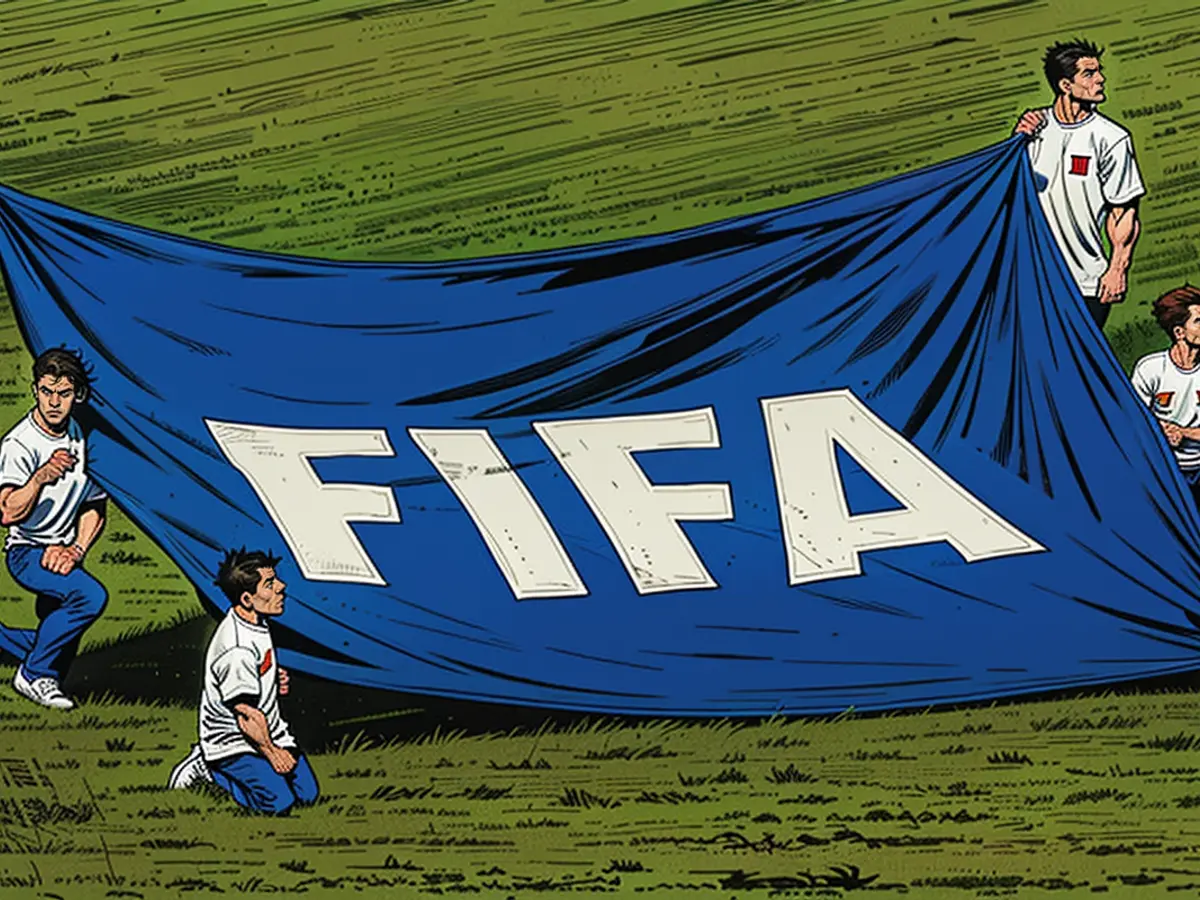Could this potentially mark a significant transformation in football player transfer procedures?
Is this a major shift in football transfers? The European Court of Justice's decision in the Lassana Diarra case has stirred up quite a commotion in global football. While FIFA maintains that their regulations remain intact, critics argue for significant changes. Who holds the truth?
What does the ECJ decision state? The European Court of Justice declared that certain FIFA regulations concerning international player transfers conflict with Union law. Specifically, it refers to the instance of a player ending their contract prematurely without just cause, an allegation leveled against Diarra by Lokomotive Moscow in 2014. According to FIFA regulations, a fine and a ban are imposed upon such termination. At the time, Diarra was supposed to pay 10.5 million euros. Notably, the club seeking to sign the player bears the financial risk under the current setup.
As per the ECJ, these provisions are excessive. Concretely, "these provisions impose on professional players and the clubs interested in employing them substantial, unpredictable, and potentially enormous financial and sporting risks, which are not compatible with the right to free labor mobility or the competition rules," the court asserted in a press release. "This is not about absolving the player from penalties, but about making the new club responsible," stated Paul Lambertz, a sports law expert, to the German Press Agency. As a consequence, FIFA may be required to alter the clause in its regulations that makes the new club responsible.
What are the opinions of the involved parties? Diarra and his legal team initiated the case and sued FIFA and the Belgian football association for damages and lost earnings amounting to six million euros. His move to Sporting Charleroi failed after the Moscow fallout in 2014. The case has been a topic of interest in world football for years.
Diarra's legal team hailed a "significant victory" in a press release. The law firm "Dupont - Hissel" was a key player in the case that led to the abolition of release clauses in the Bosman ruling. Fifpro, which represented Diarra, announced that the ECJ had made an "important decision on the regulation of the labor market in football, which will reshape the landscape of professional football." FIFA, however, asserted that the legality of the fundamental principles of the transfer system had been upheld by the ruling. Only two paragraphs of the FIFA regulations were challenged. The ruling is currently being analyzed.
What are the implications of the ruling? "Bosman 2.0, I don't see that," said Lambertz. "The penalties for terminating contracts without sound reason still apply." England's "Guardian" newspaper labeled it a landmark decision. FIFA will now need to reconsider its rules or whether they can be adjusted at all. According to Italy's "Gazzetta dello Sport," the ruling could spark a revolution and enable players to leave a club regardless of their contract length.
The specific Diarra case will be sent back to the Belgian court that referred it to the ECJ. The ECJ's decision, which has not been fully published as of Friday, is binding. Whether fixed-term contracts without valid termination reasons will fundamentally transform remains to be seen. The court also ruled that restrictions on the free movement of professional football players can be justified for the purpose of maintaining a certain stability in the first teams of professional football clubs. However, in the Diarra case, "the provisions in question (...) seem to exceed what is necessary to achieve this objective."
The ECJ's decision has potential implications for soccer transfers, as it considers certain FIFA regulations regarding player contracts excessive and potentially conflicting with Union law. Paul Lambertz, a sports law expert, suggests that while penalties for terminating contracts without cause still apply, the ruling could reshape professional soccer.








